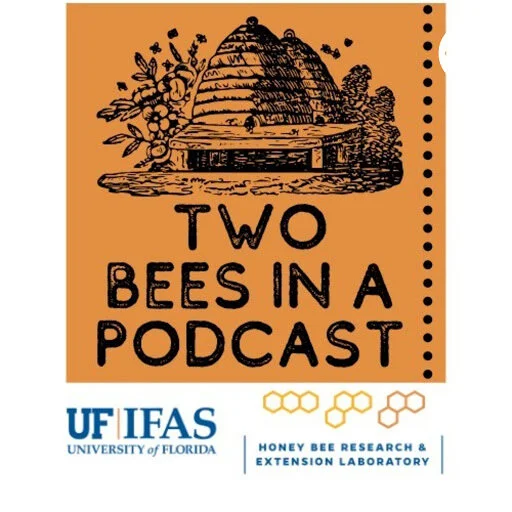Dr. Sammy sits down with the Nerdette crew about the upcoming Cicada emergence.
Read MoreWatch as Dr. Sammy explains the incredible role that insects play in our world with the Scholastic crew.
Read MoreDr. Sammy is back with Beekeeping Today again, looking at all sorts of questions than bother beekeepers, and working with smart kids and science!
Read MoreIn this episode of Two Bees in a Podcast, released on April 8th, 2021, Dr. Sammy Ramsey discusses the Tropilaelaps mite and his research on how to stop it.
Read MoreIn this episode, Dr. Sammy discusses how his understanding of his father’s health issues provided the key to discovering why honeybee populations are on the decrease.
Read MoreDr. Sammy sits down with NPR’s Maddie Sofia again to discuss some interesting facts surrounding the Cicada.
Read MoreIn this fun conversation with Jen, Natalie, and Zsofia, Dr. Samuel Ramsey discusses how he came to love insects, his life as a singer/performing artist, and his passion for science communication.
Read MoreDr. Sammy gives For The Wild an in-depth explanation as to what parasitic mites like Varroa destructor and Tropilaelaps mean for bee health.
Read MoreEntomologist Sammy Ramsey was initially scared of bugs as a kid, then read some books and became enthralled for life.
Read MoreA high school student designs a new beehive and gets help from machine learning to monitor for varroa mite infestation.
Read MoreA documentary film project about honey bees and migratory beekeepers.
Read MoreNPR's Geoff Brumfiel has been passing the time in part by looking for bugs with his two kids. Recently, they came across an ant that was actually a wasp that leads a relatively solitary life.
Read MoreHomemade or purchased, bee nesting boxes are an effective way to draw solitary wild bees to your garden, though the artificial nests may be more for our benefit than the bees’.
Read MoreWithout management, varroa mites kill most colonies within a year or two. It is imperative that all beekeepers have varroa management strategies in place to prevent high losses in their operations.
Read More


















